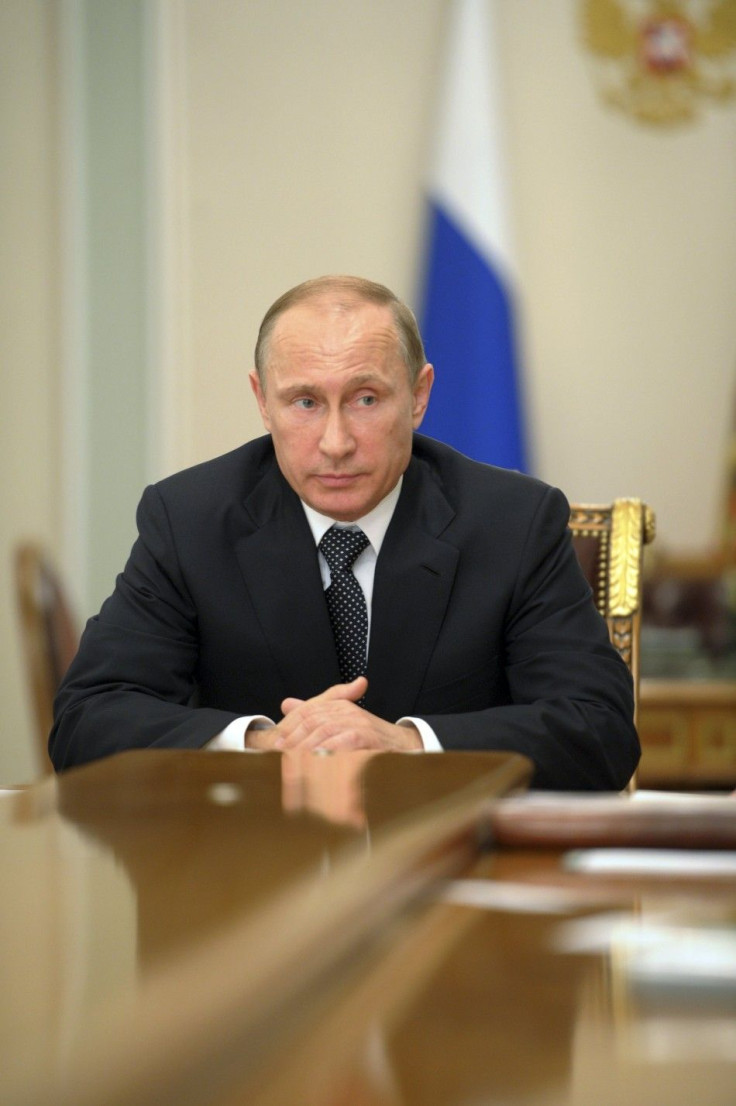Malaysia Airlines MH17: Russia’s Putin World’s Getting Small, Pitted Against Global Leaders

Russian President Vladimir Putin's world seems to be getting smaller as global leaders gang up on him to owe up to the tragedy that befell Malaysia Airlines flight MH17. Either that, or Russia may end up losing contact with its G20 comrades as well as possibly having its assets frozen in London.
The seeming widening tensions between Ukraine and Russia that led to the downing of Malaysia Airlines MH17 and the senseless death of 298 passengers of varied nationalities onboard was "a wake-up call," Secretary of State John Kerry told 'Fox News Sunday.'
What's more, the U.S. is on the win to gain the side of its European friends, a move that would see EU countries, most specially the reluctant ones, to push and drive stringent sanctions on Putin and his country.
"If Russia is the principal culprit, we can take further action against them and make it clear this kind of sponsored war is completely unacceptable," British Defence Minister Michael Fallon told the Mail on Sunday.
British Prime Minister David Cameron, unable to contain his disgust, blasted at Mr Putin during a 30-minute phone call that the Russian president had "contributed to an appalling tragedy," a report by the Daily Mail said.
Read: Malaysia Airlines MH17: Too Much Blow for Mourning Families as Rebels Steal Bodies; Complete Passenger. Crew List Released
In the same conversation, Mr Cameron threatened Mr Putin that either he cooperate with the international probe being called into Malaysia Airlines flight MH17, or risk having the country's assets frozen in London.
Australian Prime Minister Tony Abbott likewise said he had been able to talk to Mr Putin who seemed to respond to coordinating with the investigation.
But words aren't enough consolation for Mr Abbott.
''Now he has to be as good as his word,'' he told Macquarie Radio 2GB on Monday morning. ''And I will be speaking regularly to the Russian President to do my best to hold him to his word.''
But despite threats of economic isolation, will Mr Putin really bend down his knee to international pressure?
Read: Malaysia Airlines MH17 Tragedy Feared to Provoke World War 3
"Everyone that won't fully cooperate now leaves serious suspicion on themselves," Reuters quoted Dutch Prime Minister Mark Rutte.
"Russia risks becoming a pariah state if it does not behave properly," British Foreign Secretary Philip Hammond told Sky television.
Jonathan Eyal, director of international security studies at London's Royal United Services Institute, wrote in a column in The Observer will just mostly likely play tango with the other global leaders.
"Chances are high that Russia will simply brazen out the crisis, regardless of any sanctions threatened by the west. The long-term interests of the Russian nation are being held hostage by the vanity of its leader."
That incriminating evidence have been "cleaned up" at the Malaysia Airlines flight MH17 crash site is one measure that Mr Putin could use to extricate himself and his country from the disaster.
"The 'smoking gun' linking the particular missile that hit the airliner to Russian arsenals is, therefore, never likely to be found, which will mean Moscow has plenty of wriggle room," Eyal wrote.
Read: Intercepted Phone Conversations Point to Group of Russian Separatists as Alleged Mastermind of Downed Malaysia Airlines MH17 - Report
But Eyal believed that while Mr Putin might be able to weather out the storm, this will only be short-term. "International pressure to impose further sanctions on Moscow could become unstoppable. The Malaysian airliner's tragedy will embroil Russia in years of litigation. The families of the bereaved will seek compensation. Arrest warrants will be issued against individual Russian military commanders, and countries such as the Netherlands and Australia, which lost so many of their citizens, will demand satisfaction."
Mr Putin may be a good tactician on the way he handles the crisis now, "but he remains a poor strategist, and an obstacle to Russia's future wellbeing."





















